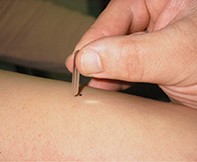Peer Reviewed
Feature Article Ear, nose and throat medicine
Diagnosing and treating allergic rhinitis
Abstract
Differentiation of allergic rhinitis from several other nasal and sinus conditions requires a careful history and examination and judicious use of special tests. Treatment options include antihistamines, corticosteroid sprays, allergen avoidance and immunotherapy.
Key Points
- History and examination are of prime importance for an accurate diagnosis of allergic rhinitis.
- Demonstration of specific IgE to relevant allergens is necessary (but not, by itself, sufficient) to make the diagnosis.
- Drug therapy usually gives the most rapid relief of symptoms and should be tailored to suit the severity and frequency of the patient’s symptoms.
- Nasal corticosteroid sprays often provide effective and safe long term control of allergic rhinitis.
- Nasal decongestant sprays should be used cautiously for obstruction due to the common cold but avoided for allergic rhinitis.
- Allergen immunotherapy results in effective long term tolerance to the administered allergen. It should be carried out after careful assessment of indications and contraindications. It should be administered under the supervision of a medical practitioner trained to recognise and treat anaphylaxis, in premises equipped for the treatment of this condition.
Purchase the PDF version of this article
Already a subscriber? Login here.

